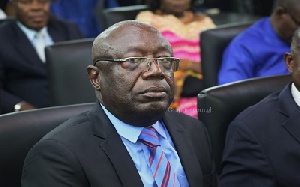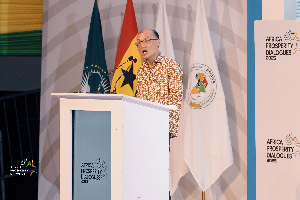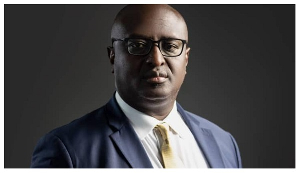The Western Regional Minister-nominee, Dr Kwaku Afriyie, has expressed dissatisfaction with what he described as the undue financial burden placed on cocoa farmers by government.
He said the concept of cocoa roads in which the proceeds of cocoa farmers are used in constructing roads leading to communities that grow the cash crop is nothing more than an exploitation of the farmers.
He said the farmers have to be freed from any financial commitment since they have enough responsibility on them.
"In terms of financing roads, it is unfair to look at one segment of the society. The farmers pay taxes and they are being unnecessarily overburdened," Dr Afriyie told members of Parliament's Appointments Committee yesterday.
About 70% of Ghana's population live in rural areas with a sizable number being cocoa farmers in six regions, such as: Ashanti, Eastern, Central, Western, Brong Ahafo and Volta.
Statistics have it that the cash crop single-handedly contributes about 25 percent to the nation's Gross Domestic Product (GDP).
In 2015, the erstwhile National Democratic Congress (NDC) government launched a $150 million project to improve road infrastructure of cocoa growing areas in the country.
Notable roads targeted included the 9km Proso-Anhwiafutu Junction Road in the Juaboso District in the Western Region, Juaboso Junction-Bonsu Nkwanta Feeder Road and 33km Berekum-Seikwa Road.
But Dr Afriyie, who himself is a farmer, said the cocoa roads, which tap into proceeds of the cash crop, is an unfair treatment of the growers who are predominantly poor.
"Why don't they appropriate half of Members of Parliament (MPs) [salary] for MP roads?" he asked, adding the money earmarked for the cocoa roads has to be given to the farmers.
The MP said cocoa has become a "political crop" in the country in that the welfare of farmers depends on how generous the government would be in terms of bonuses paid them.
With an air of seriousness around him, Dr Afriyie said, "Cocoa is the most democratic crop in the world...that is the way my mind works."
Cocoa sector child labour concerns ‘grossly exaggerated’
He bemoaned the growing perception of child labour in the cocoa sector which he described as “grossly exaggerated.”
During his vetting by Parliament’s Appointments Committee, Dr. Afriyie insisted the child labour was not a problem in the cocoa sector and blamed a cultural disconnect for the perception.
“You will be surprised that child labour per say is not a big issue in the cocoa industry in Ghana now. You have to segregate the cultural dimensions of our social setup from what people label as child labour,” he explained to the vetting committee when the topic was raised.
“That child labour thing especially in the cocoa industry, I am happy to report, is largely and grossly exaggerated in this country because it gives our country a bad image,” the Minister-nominee added.
The Minority Leader, Haruna Iddrisu, during the vetting, interposed that there may be some legitimacy to the concerns with child labour given US department of state has recently downgraded Ghana citing child labour in the agriculture sector, and in particular the cocoa sector.
Dr. Afriyie retorted, saying he took “strong exception” to such claims adding that “perhaps we have to educate those who are labelling us as such.”
“This problem is an image problem which is intertwined with our cultural values. If you come to my village and at about 4 pm, you find a child turning the cocoa over, I do not classify that as child labour.”
“I am not denying that you will not get a case of child labour or child abuse in this society. All I am saying is, that kind of stigmatisation, the child labour thing has got its own cultural dimension that they will lump all together,” Dr. Afriyie noted later on when confronted with some concerns like the proximity of children to dangerous tools, strenuous working condition and chemicals like pesticides.
He also said fathers taking their children along to farms did not constitute child labour explaining that, “your son is going for an exercise, he doesn’t carry heavy loads. On weekends he wants to accompany his father to the farm instead of loitering about in the village and engaging in mischievous things… I don’t classify that as child labour.”
Child labour statistics
According to a survey by the Ghana Statistical Service (GSS), more than 21 percent of children in Ghana are still engaged in child labour.
A report which was released by the GSS in 2014 indicated that 21.8 per cent of children aged 5 to 17, representing about 1.9 million children, were engaged in child labour while 14.5 percent of the children covered in the survey were engaged in hazardous child labour.
Business News of Wednesday, 15 February 2017
Source: thefinderonline.com

















